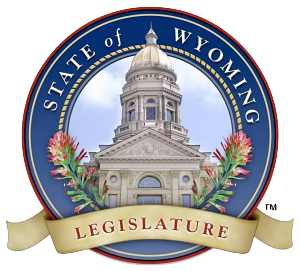 307 Votes endeavors to bring you a simple, yet accurate, method of rating Wyoming legislators to aide you in determining who you can trust, and, therefore, who deserves your vote. Legislator rankings consist of three trust levels; High, Limited, and Low.
307 Votes endeavors to bring you a simple, yet accurate, method of rating Wyoming legislators to aide you in determining who you can trust, and, therefore, who deserves your vote. Legislator rankings consist of three trust levels; High, Limited, and Low.
Click on our Spotlight Report to see your legislator’s ranking. Find your legislator’s name alphabetically or use the County drop-down menu. Click on their picture and begin reading – you can read as much or as little as you want by clicking on the tabs.
You can also use the additional drop-down menus to view Trust Level groups, or sort by Senators, House Representatives, Republican’s or Democrats.
What Inspired Our Trust Ranking System?
The United States Constitution and Wyoming Constitution are the bedrock for the best government and governance that our Founders could conceive. This is why both constitutions are at the center of the Oath of Office. The Oath of Office is not only the the solemn promise that every elected official must make before taking office – it is our job to hold them to it after they take office. In other words, can we trust them to live up to their Oath?
Wyoming State Constitution Article 6, Section 20.
Oath of office; form.
Senators and representatives and all judicial, state and county officers shall, before entering on the duties of their respective offices, take and subscribe the following oath or affirmation:
“I do solemnly swear (or affirm) that I will support, obey and defend the constitution of the United States, and the constitution of the state of Wyoming; that I have not knowingly violated any law related to my election or appointment, or caused it to be done by others; and that I will discharge the duties of my office with fidelity.“
We do not claim that our Trust Ranking System is perfect. We review a great deal of publicly available data and records and make determinations to the best of our ability, and as objectively as possible. Ultimately everything is compared to a legislator upholding their Oath of Office. We believe this is critical information that every Wyomingite should have access to every day of the year, and not just during election seasons.
How Our Ranking System Works
Legislator ranking consists of three trust levels:
- High Trust – We believe these legislators have earned a WY citizen’s vote for re-election. We also believe these legislator(s) should be generously encouraged during campaign seasons, whether through donations, as a campaign volunteer or putting up a campaign sign in your yard.
- Limited Trust – We believe the Oath of these legislators is no longer a demonstrable priority, and they must prove they are a superior choice to any new candidate(s) who run against them.
- Low Trust – We believe legislators with this ranking do not belong in state government and should be replaced as soon as possible.
How we rank legislators:
- High Trust = 3 pluses (+ + +)
- Limited Trust = 2 pluses (+ + –)
- Low Trust = 1 or 0 pluses (+ – –) or (– – –)
The final ranking of each legislator occurs in their summary, which is the first tab on their page.
How we score legislators:
Legislators receive a simple plus (+) or minus (–) score in each of the following three categories. These categories are seen as the next three tabs on each legislator’s page:
- Representation
- Competence
- Integrity
Representation
A legislator’s Representation is evaluated by Attendance and Public Conduct. A transgression in either earns a negative score (-) for Representation.
Attendance: A legislator must be present for all votes on 90% of the days of any legislative session. For example: 2023 Regular Session had 37 days. Therefore a legislator had to be present for, and vote on all bills, for any 33 days. If a legislator missed any votes on 5 or more days, they receive a negative (-) score. Budget Sessions typically last 20 days – in that case legislators cannot miss any vote on any more than 2 days. Elected representatives must be present to vote (and debate when necessary) to properly represent their constituents.
Public Conduct: A legislator must behave appropriately in public and to the public. One example would be a legislator flouting the law in the face of the public – as if they are above the law. Such is the case with WY State Constitution, Article 3, Section 46 (more on that below). Another example would be open hostility or rudeness to citizens or fellow legislators in a public forum. Still another example would be shameless butt-kissing kow-towing to big corporations and/or lobbyists during committee meetings. (It really is disgusting for a citizen to witness a legislator grovel to “stakeholders”.)
Additional information provided under the Representation tab includes a brief summary of Bill Sponsorship History and Committee Assignments. This data is helpful for assessing Integrity issues (below).
Competence
A legislator’s constitutional competence is presented on a Constitutional Bill Vote Scorecard that shows eight constitutional categories (categories such as the Separation of Governmental Powers, First Amendment, Second Amendment, etc.). The score in each category is a numeric value of the legislator’s vote record on previous bills specific to that topic.
A legislator’s score for each of the constitutional categories is generated by a statistical tool that we use from an outside source. Constitutional categories that have a “N/A” grade, refer to specific bills that the legislator did not have the opportunity to vote on. In those cases, that category is not counted in the legislator’s final percentage.
The scores are added up and divided by the number of categories the legislator has a vote record on. The final value is computed as a percentage. Legislator’s must have a percentage of 85% or higher to receive a final positive (+) score.
Click here for more on the process and bills we use to assess Constitutional Competence.
Integrity
Information provided under the Integrity tab includes:
- Conflicts – we make these determinations by comparing their sponsorship and vote record to their mandatory Financial Disclosures; Employment/Income; Memberships/Civic Organizations; and (sometimes) Campaign Contributions.
- Employment/Income (info is what is reported at their legislative webpage and/or what they disclose on their State Elected Officials Financial Disclosures;
- Memberships/Civic Organizations (info is from what is reported at their legislative webpage);
- Campaign Contributions (info is publicly available records obtained from the Wyoming Secretary of State’s Wyoming’s Campaign Finance Information System)
We assess a legislator’s integrity by how they manage personal or private conflict of interests. ‘Conflict of interest’ is addressed in our Wyoming State Constitution:
Article 3, Section 46 – Interested member shall not vote:
A member who has a personal or private interest in any measure or bill proposed or pending before the legislature shall disclose the fact to the house of which he is a member, and shall not vote thereon.
If a legislator does not acknowledge/abstain from a conflict of interest they are given a negative (-) score for Integrity.
Example: If a legislator owns a bar, they should abstain (recuse themselves) from voting on any bill or measure that deals with bars/taverns/saloons (etc.) or liquor licenses.
Note: Any conflict bill that we point out at this site does not mean we view the bill as bad, instead we are taking issue with legislators who vote/sponsor the bill as having a potential conflict.
When a legislator does acknowledge a conflict and abstains from the vote – this is noted in their attendance. Voluntary recused votes by honest legislators are not counted as a missed vote. (See list of 2023 Conflict Recusals here.)
Problems with conflicts are three-fold:
- Not all legislators acknowledge and abstain from voting on conflicts;
- Most citizens are not informed on what their representative’s conflicts are;
- We have found no history of Legislative Leadership holding a legislator accountable for violating Wyoming State Constitution Article 3, Section 46.
Thus, there is no accountability for conflicted legislators and their actions. This is a significant problem that citizens need to be aware of and address.
Note: Wyoming Ethics Statutes (§9-13-101 through 109) are supposed to address conflict of interests and other ethics issues, but many instead dilute the direct statement of Wyoming State Constitution Article 3, Section 46.
307 Votes holds WY legislators accountable to their Oath of Office to support, obey and defend our Wyoming State Constitution – and not to inferior, secondary statutes flawed and deficient on specific aspects of ethics.
NOTE:
The information we provide on any legislator might change if we find, or are provided with, additional details in regards to conflict(s) of interest, vote records, etc. In such cases the new info will be acknowledged at our ‘Updates’ page and the appropriate changes recorded at the legislator’s page.

